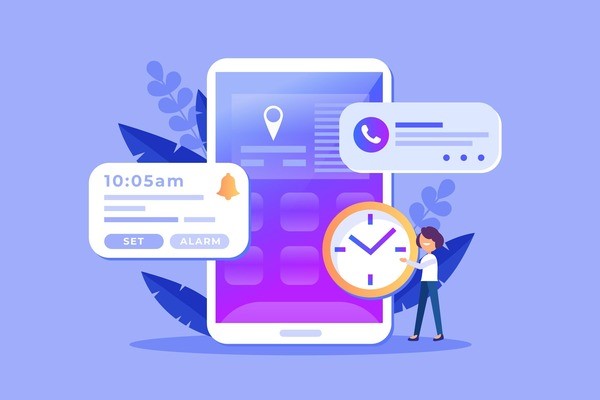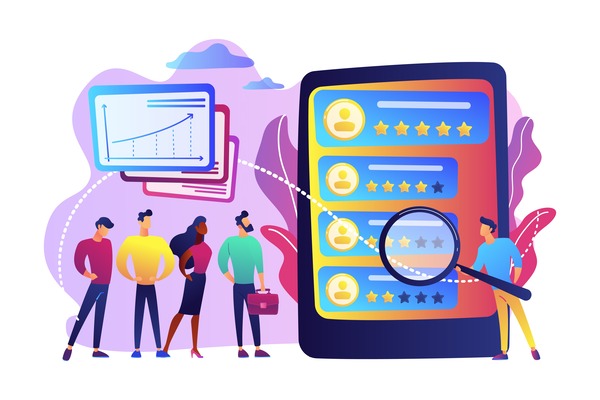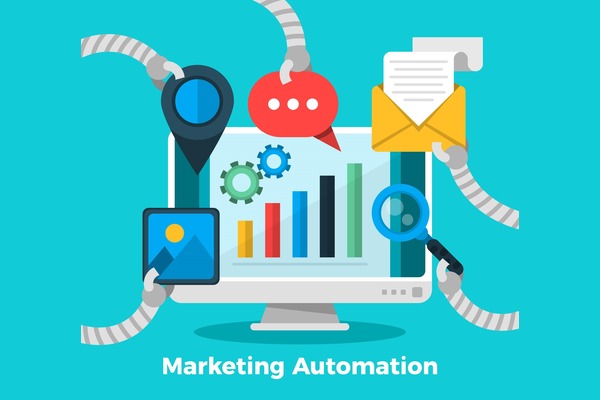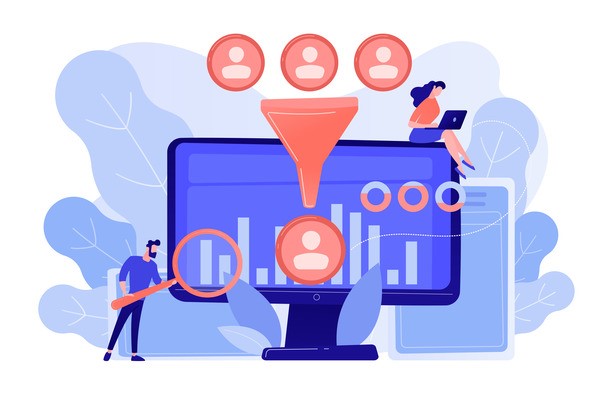
The most fundamental aspect of any business is marketing. The goal is to generate leads to cherish maximum profit and be the Dark Horse of business. The emerging trend of online business has boomed a wide sphere of channels for Lead Generation. Are you an entrepreneur, be it a B2B or B2C firm, searching for effective strategies & tactics for Lead Generation as an automated marketing tool? Well, this blog is for you then. Here we’ll discuss the key differences in lead generation tactics between B2B & B2C businesses.
Lead generation is a crucial aspect of marketing for both business-to-business (B2B) and business-to-consumer (B2C) companies. However, the approach and strategies for lead generation differ significantly between these two categories. Let us understand the basics of Lead Generating, B2B and B2C marketing, and the process variations.
What is Lead Generation?
Lead Generation simply refers to the process of analyzing consumer behavioral data and converting that interest into sales.
Automated lead generation is like a golden egg for new-age businesses. But, do not confuse automation with human replacement. Using the right automation lead-generating tools, the process will only boost your overall productivity.
Saying that of automated lead generation let us give you a brief:-
What Is Automated Lead Generation and Why Use it?
Automated lead generation is a blend of outbound and inbound marketing solutions backed by machine learning tools. Automation allows you as a business person to source only those data that are capable of increasing your ROI in a nick of time.
By including automated lead generation in your business, be it small or big, you spare yourself and your marketing team from sourcing leads manually from the phone, feedback forms, and cold emails.
The whole point of building a marketing funnel is to make way for effective new prospects to find your business. So, the more you can automate your lead generation and facilitate lead nurturing processes, the merrier!
The Basics of B2B & B2C Marketing
- As the name suggests Business-To-Business marketing (B2B) happens between two organizations instead of any layman. The focus is to create a long-term partnership for a long-run business formation. Such marketing is targeted to achieve higher profit from low-volume sales. B2B marketing focuses on building personal relationships and is formed by a lengthy decision-making process.
- Unlike B2B, Business-To-Consumer(B2C) marketing depends upon diversified people. Though building relationships leads to long-term business, B2C is more of a transactional relationship and is formed by a quick decision-making process.
Lead Generation Strategies for B2B
Unlike business-to-consumer (B2C) marketing, B2B lead generation requires a unique set of strategies and tactics to reach and engage with the right decision-makers. By implementing the following approaches, you can enhance your B2B lead generation efforts and drive meaningful business opportunities.
1. Account-Based Marketing (ABM)
Account-Based Marketing focuses on targeting specific companies or accounts that align with your ideal customer profile. Develop personalized marketing campaigns tailored to the needs and pain points of key decision-makers within those accounts. Use targeted content, personalized emails, and direct outreach to build relationships and nurture leads.
2. Thought Leadership Content
Establishing your brand as a thought leader in the industry is crucial in B2B lead generation. Ask why? Creating high-quality content such as whitepapers, case studies, industry/sales report, and webinars are informative. Sharing certain valuable insights, research work, best practices, and ramification/upgrading reports can position your brand as a trusted source of expertise and can make you shake hands with corporate or market leaders.
3. Optimize Negative Keyword
By including negative keywords you can ensure that your ads are going to exactly the right people with the right search intent. If you optimize negative keywords, then, if a user searches for them, Google won’t show your ads in the results. This will result in fewer clicks, but means that every clicks are of far higher quality, and much more likely to convert into leads.
4. LinkedIn Engagement
LinkedIn has emerged as an expert business community. This can be termed a powerful platform for B2B lead generation. It helps you connect and engage with industry professionals. Sharing insightful content, and feedback can help you build strong relationships with potential leads and will eventually grow your business sphere. Utilize LinkedIn's advanced targeting options for sponsored content and ads to reach decision-makers in specific industries or job roles.
5. Webinars & personalized emails
Participate in industry conferences, trade shows, and webinars to generate leads. Host webinars on topics relevant to your target audience and provide valuable insights. You can use registration forms to attain attendee information and follow up with personalized emails to nurture leads further.
Lead Generation Strategies for B2C
In the world of B2C business acquiring new customers and maintaining good rapport with the existing ones, on a daily basis, is crucial to revenue growth. As this type of business marketing requires dealing with a diversified mass, the tricks of lead generation for B2C are slightly different from B2B.
1. Social Media Advertising
Nowadays the fastest mode to connect with maximum audience is Social Media. You can advertise and at the same time sell your product/services to millions of people. Creating engaging ad campaigns with compelling visuals, persuasive copy, and clear calls to action can drive huge conversions. You may generate leads by utilizing automated data of clicks and views.
2. Influencer Marketing
Influencer marketing is the most trendy marketing tactic of the present day. As influencers already have a significant level of followers, partnering with them will promote your product and service. Remember to choose only those who align with your niche market!
3. User-Generated Content (UGC)
Encourage your customers to create and share content related to your brand. User-generated content, such as customer reviews, testimonials, and social media posts, adds authenticity and credibility to your lead-generation efforts. Showcase UGC on your website and social media platforms to build trust and encourage potential customers to convert.
4. Content Marketing
Develop compelling and visually appealing content to engage and attract B2C leads. Images, videos, infographics, and other social media content interest the audience(eye-catchy). You can use storytelling techniques to evoke emotions and bonds to create brand loyalty.
5. Referral Key
One true evergreen tactic of lead generation is Word of Mouth. Leverage the power of referral marketing to generate high-quality leads from trusted sources. The more satisfied a customer is the more referral he/she would do in their circle. This in turn will lead to further new leads with positive transactional relationships.
B2C companies can utilize Chatbots and live chat features on their website to engage with visitors and capture leads. Automated chatbots are capable to answer frequently asked questions, providing recommendations, and collecting contact information for follow-up. This is a perk of Automated Lead Generation.
Though lead generation strategies and tactics for B2B & B2C marketing are quite similar to each other, it mainly differs in the purchase process, target audience, and relationship-building approaches. At Helium CRM, we implement various automated lead-generating tools as per your niche market to help you reach new milestones and sustain the competition with ease. Whether you have or don't have any detailed clue about lead generation, we can guide you at every step.
Follow us on




